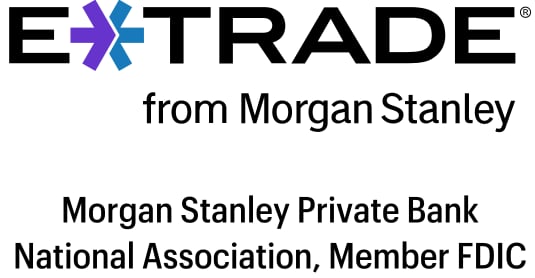Joint Bank Accounts: How and When They Work
Families and partners need good communication to manage a joint account. Opening a joint account is a simple process.

Many, or all, of the products featured on this page are from our advertising partners who compensate us when you take certain actions on our website or click to take an action on their website. However, this does not influence our evaluations. Our opinions are our own. Here is a list of our partners and here's how we make money.
Joint bank accounts belong to multiple people, each of whom can contribute to and use the money in the account. Such accounts can be a good fit for couples, adults assisting their aging parents and parents who are teaching their kids about money management.
On paper — and in an ideal world — joint accounts provide easy collaboration for spending and saving. But realistically, they require more self-awareness and trust than the typical bank account.
Here's a closer look at what to consider before opening a joint account.
» Skip ahead to compare some solid checking accounts.

Is a joint bank account a good idea?
A joint bank account can be a good idea as long as you and the other account holder have a strong, trusting relationship. Whether you’re planning to share an account with a child, significant other or aging parent, communication is essential. That may mean having difficult discussions about spending and saving habits. As uncomfortable as it may be, initiating these types of conversations can prevent even bigger headaches later.
Pros of joint bank accounts
Parents can monitor a child’s spending habits and can quickly transfer money to a joint account when necessary.
Couples can use cash in a joint account to cover shared expenses such as rent, utilities and food, as well as shared savings goals, such as setting aside money for a vacation. Joint accounts can be helpful for married couples who are combining assets as well.
Adult children can help aging parents manage their finances.
A joint account can be set up so that if a parent dies, an adult child has immediate access to funds in the account, avoiding a potentially lengthy legal process.
Each account holder is federally insured up to $250,000 at a bank or credit union. (Joint accounts and individual accounts are considered different ownership categories, so a person can be insured for up to that amount in a joint account and separately for up to that amount in an individual account. Learn more about FDIC insurance.)

Member FDIC
Discover® Cashback Debit

N/A
$0

Deposits are FDIC Insured
Chime Checking Account

N/A
$0

Member FDIC
Varo Bank Account

N/A
$0

Member FDIC
E*TRADE Max-Rate Checking

3.00%
$15
Cons of joint bank accounts
A child may spend too freely and become overly reliant on mom or dad refilling the account.
Co-owners on the account are both responsible for fees, such as overdraft charges.
If one holder lets debts go unpaid, creditors can go after money in the joint account.
Both holders can see transactions in the account, which can present privacy issues.
» Looking for savings options? See NerdWallet's best savings accounts
Joint bank accounts and marriage
Joint bank accounts are a common consideration for newlyweds since the couple has just legally combined their assets. Some couples may find it valuable to open a joint account even before the wedding so they can use it to pay for the event. Couples who live together before marriage may also find a joint account useful for paying for household expenses. Another benefit of joint accounts is that FDIC insurance covers $250,000 per co-owner, so the total coverage for the account is $500,000.
Before you open an account, make sure you know the rules on your joint account, including who is allowed to close it. According to the Consumer Financial Protection Bureau website, “In most circumstances, state law provides that anyone who can write checks on the account has the ability to close the account.”
If you’re married — especially newly married — talk to your spouse about whether and how they’d like to set up a joint account with you. If you do decide to open a joint account, keep in mind that you don’t have to combine all of your money with your spouse’s. Some married couples share a joint account while also maintaining separate personal accounts, even if they only use those accounts as “fun money.”
How to open a joint account
Setting up a joint bank account is much like opening a personal one. Here's what the process will probably look like:
Select the "joint account" option during the application process with your bank.
Provide the bank or credit union with personal information for all account holders, such as addresses, dates of birth and Social Security numbers.
If you’re opening a joint account with a significant other, you don't necessarily need to close your individual account. You may want to have money of your own for personal expenses or for gifts and surprises.
» MORE: Joint accounts at major banks
Joint accounts for teens
If you have a teenager, you might also consider opening a teen checking account. These accounts can have lower fees and may place daily restrictions on how much cash your child can withdraw from an ATM. However, if your bank or credit union doesn’t offer teen accounts, you may need to open an account at a different financial institution, which could make it more difficult to transfer money easily. Check with your bank for options for opening a bank account for your teen. (See our picks for top checking accounts for teens.)









